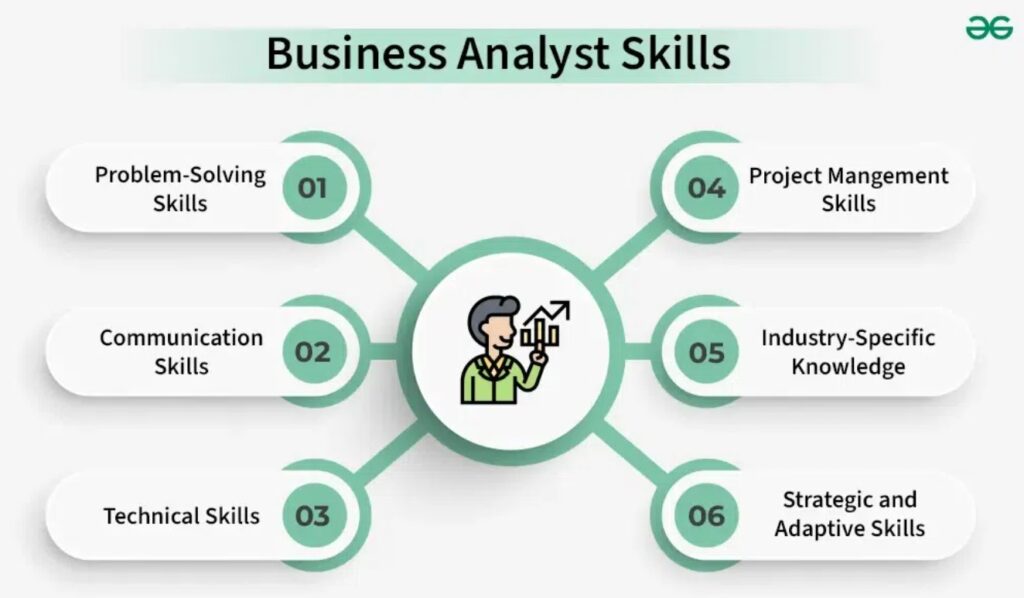In Thane’s dynamic business environment, companies must be proactive rather than reactive when navigating uncertainty. One of the most powerful tools for doing this is scenario analysis. Scenario analysis enables businesses to visualise multiple possible futures and prepare for them strategically. Whether running a startup in Wagle Estate or managing operations in Ghodbunder Road, mastering this technique is vital. Enrolling in a business analyst course in Thane can help professionals gain the expertise to apply scenario analysis to strategic planning effectively.
Understanding Scenario Analysis
Scenario analysis is a structured process to evaluate future events by considering alternative possible outcomes. It doesn’t aim to predict the future but to explore what could happen under different assumptions. For businesses in Thane dealing with shifting consumer behaviours, regulatory changes, or economic uncertainty, scenario analysis offers a roadmap to prepare for various possibilities. A good business analysis course teaches participants how to build, interpret, and implement multiple business scenarios to support sound decision-making.
Importance of Scenario Analysis in Business Planning
Traditional business planning often relies on linear forecasting based on historical data. However, in Thane’s competitive markets, industries like real estate, IT services, and retail constantly evolve, and this approach can fall short. Scenario analysis provides a broader lens. It helps businesses assess risk, allocate resources more effectively, and stay agile. Those who take a business analysis course in Thane are better equipped to integrate scenario-based thinking into their strategic planning processes, making them invaluable assets to their organisations.
Types of Scenarios in Business Strategy
Typically, three scenarios are used in business strategy: best-case, worst-case, and most-likely scenarios. Businesses in Thane can use these to evaluate how government policies, technological disruptions, or market competition may influence outcomes. For example, a retail chain in Viviana Mall might examine a worst-case scenario involving supply chain delays and rising logistics costs. A solid business analyst course will teach learners to construct these scenarios using real-time data, assumptions, and forecasting models.
Scenario Analysis for Risk Management
Risk is inherent in every business. Understanding potential risks can significantly influence strategic decisions from small enterprises in Naupada to large manufacturing units in Kalwa. Scenario analysis helps identify what could go wrong and develops contingency plans. This is particularly crucial in sectors like pharmaceuticals, finance, and logistics, which are prominent in Thane. A business analysis course empowers professionals with frameworks like SWOT, PESTLE, and Monte Carlo simulations to model these risks effectively.
Integrating Scenario Planning with Data Analytics
The rise of digital tools and data analytics in Thane has further enhanced the power of scenario planning. Businesses now have access to large volumes of data that can feed into their scenarios for more accurate results. For instance, predictive analytics can forecast customer demand shifts or supply chain bottlenecks. Professionals trained through a business analyst course are skilled in using analytics software like Excel, Power BI, and Python to support their scenario models, making their strategic recommendations data-driven and actionable.
Scenario Analysis for Long-Term Strategy
Scenario analysis isn’t just about short-term forecasting; it plays a crucial role in shaping long-term vision and growth. Companies in Thane aiming for expansion, diversification, or digital transformation can use scenario planning to assess long-term impacts. Imagine a manufacturing firm considering automation—scenario analysis can evaluate how this change affects costs, productivity, and workforce over time. A comprehensive business analyst course introduces tools like scenario trees and sensitivity analysis to formulate long-term strategies.
Involving Stakeholders in Scenario Planning
For scenario analysis to be truly effective, it must include input from diverse stakeholders. This ensures the scenarios reflect varied perspectives and increases buy-in for the strategy. In Thane, involving team members from different departments—sales, finance, operations—creates richer and more holistic scenarios. A good business analyst course teaches facilitation skills and stakeholder engagement techniques to help analysts guide cross-functional teams in building robust business plans.
Real-Life Example: Scenario Planning in Thane’s Real Estate Sector
Thane’s real estate market has witnessed rapid growth and fluctuations. Developers face uncertainty due to changing regulations, shifting buyer preferences, and inflation. Scenario planning allows them to explore what would happen if interest rates rise, new infrastructure projects get delayed, or demand booms. Professionals with a business analyst course background can analyse these variables and propose alternate investment or marketing strategies, ensuring firms remain competitive even in volatile conditions.
Choosing the Right Tools for Scenario Analysis
Technology has made scenario planning more accessible and efficient. Tools like Microsoft Excel, Tableau, and even cloud-based modelling software enable businesses to visualise and test various assumptions. For example, a Thane-based logistics company can simulate delivery delays due to monsoon disruptions and evaluate the financial impact. A business analyst course introduces these tools and provides hands-on experience in building dashboards and reports that make scenario analysis insightful and practical.
Building a Culture of Preparedness in Thane Businesses
Ultimately, scenario analysis promotes a culture of preparedness. It encourages businesses to be proactive, plan for uncertainty, and confidently respond to change. This mindset can make a huge difference in a vibrant city like Thane, where industries are growing rapidly but face frequent disruptions. Training through a business analyst course ensures that employees at all levels are familiar with scenario planning techniques and can contribute meaningfully to strategic discussions.
Conclusion
Scenario analysis is not just a buzzword—it’s necessary for modern business strategy, especially in a competitive and evolving hub like Thane. It offers companies a powerful lens to explore uncertainties and shape future outcomes with clarity and confidence. Whether you’re part of a growing startup or an established enterprise, understanding and implementing scenario analysis can be a game changer. To develop these essential skills, enrolling in a Business Analysis Course in Thane is a smart and strategic investment in your professional growth and your organisation’s future.
Business name: ExcelR- Data Science, Data Analytics, Business Analytics Course Training Mumbai
Address: 304, 3rd Floor, Pratibha Building. Three Petrol pump, Lal Bahadur Shastri Rd, opposite Manas Tower, Pakhdi, Thane West, Thane, Maharashtra 400602
Phone: 09108238354
Email: [email protected]
